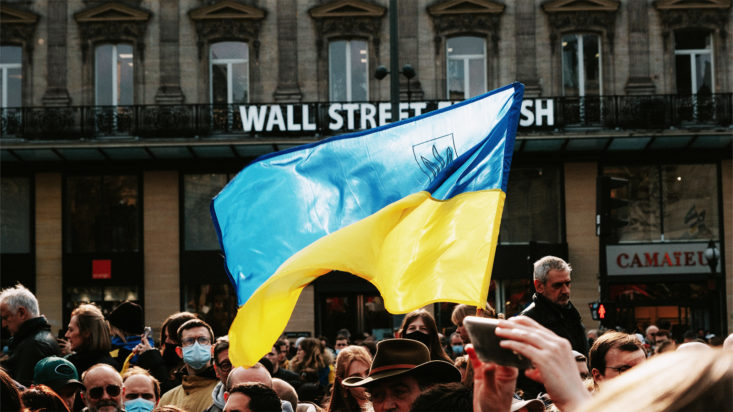Twelve Ukraine-driven disruptions that are set to change the world
The Russia-Ukraine war has seemingly moved from the headlines in most of the developed world, with most attention now being paid to the challenge of a jump in the cost of living and the impact of higher interest rates on repayments and property prices.
Yet, Russia’s invasion of Ukraine has and will continue to have a significant impact on the outlook of the global economy and the human race for decades to come. This is something highlighted by global consultancy firm, McKinsey, in a recent post tracking the 12 major disruptions that are set to change the world as we know it.
Humanitarian costs aside, which are significant and real, the focus of the report is focused on the impact of government policy as well as consumer and business responses. The first, which may well be an intended consequence by Russia, has been a “massive humanitarian” crisis in which 5.6 million refugees have fled Ukraine into Europe and 7.7 million have left their homes to seek shelter.
The implication of this is that “the vulnerable will suffer the most” with displacement combining with a war that has sent prices soaring for essential products, now putting at risk the most basic necessities of human life: food, warmth and shelter. McKinsey expect the Food and Agricultural Index to jump by as much as 45 per cent in 2022, which has historically sent millions below the poverty line.
Sticking with warmth, and it is becoming clear that “energy policy is rotating toward secure access and source diversification” as Europe seeks to break the relationship that has seen about 36 per cent of gas, 30 per cent of coal and 10 per cent of oil come from Russia. Recent sanctions and cuts in demand will help in the short-term but real long-term change is required.
After years of open borders and strong demand, “food security is on the agenda,” due to the dominance of Ukraine and Russia in several key commodities. This isn’t just in the likes of grain and oilseeds, but also the production of around one-third of the world’s ammonia and potassium, both of which are central to fertiliser production. Without fertiliser, crop yields may fall further.
Materials critical to battery and other technologies were in high demand before the war, with some reaching ten-year highs, but Australia has been one country to join the party by offering grants and loans to back those groups mining these commodities on domestic soil.
The supply chain is set to be reversed, from the highly popular, high-margin “just in time” strategy popularised for decades, to one preparing for “just in case” events and being able to respond to border closures, pandemics and the like.
The implications for businesses are much more broad and “unpredictable” according to McKinsey, which suggests the direct impact of the war on the financial system has been limited, with European banks likely the most exposed. Corporate actors, whether for profit or ESG purposes, have “taken a stand,” with about 70 per cent of the 281 Fortune 500 companies operating in Russia scaling-back or exiting their operations.
But ultimately, the biggest change is set to be a return to “volatility, volatility, volatility,” with the VIX Index beginning to surge; albeit not back to March 2020 levels, but clearly becoming the new normal as economic and inflation data remains volatile.











